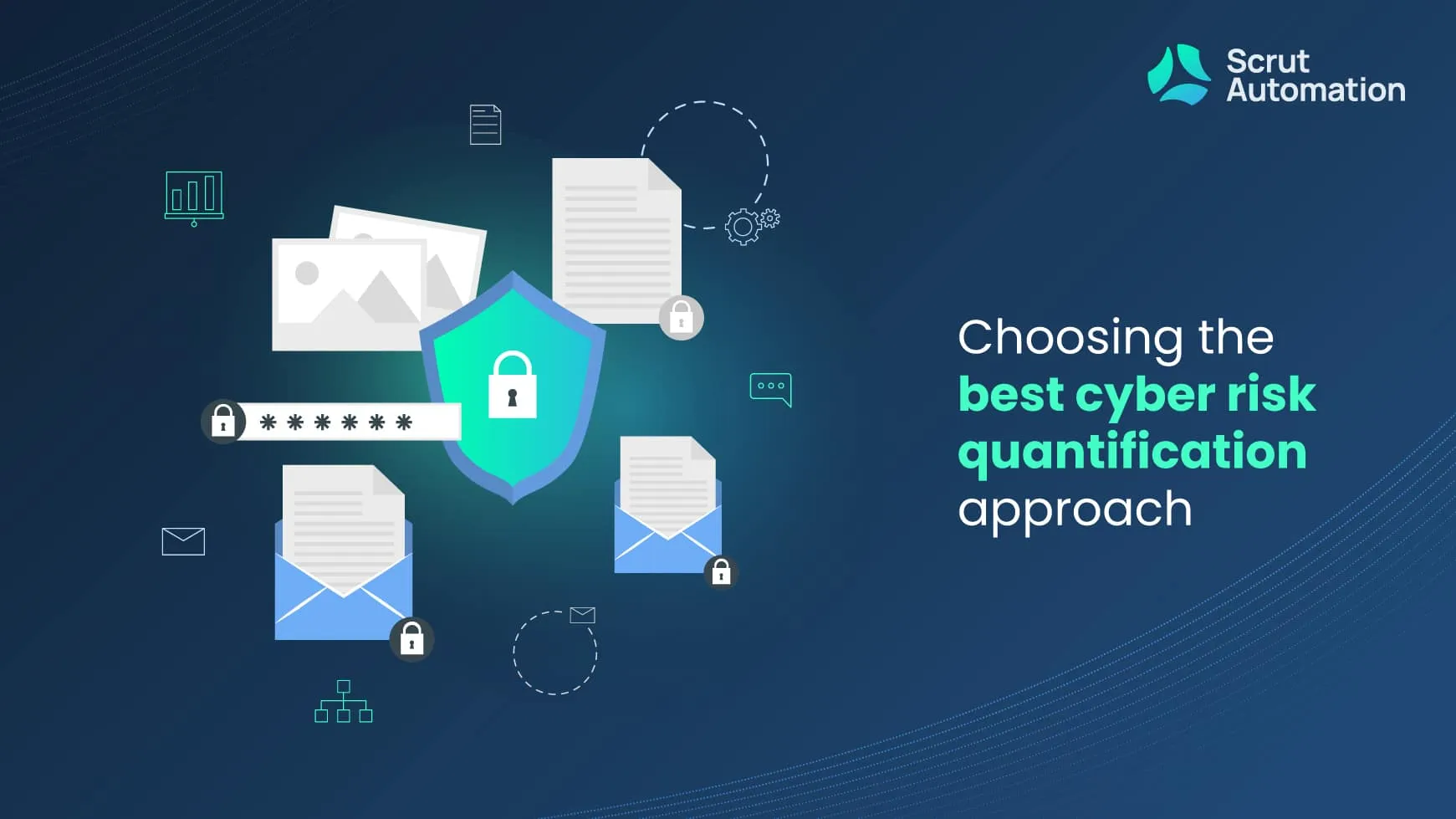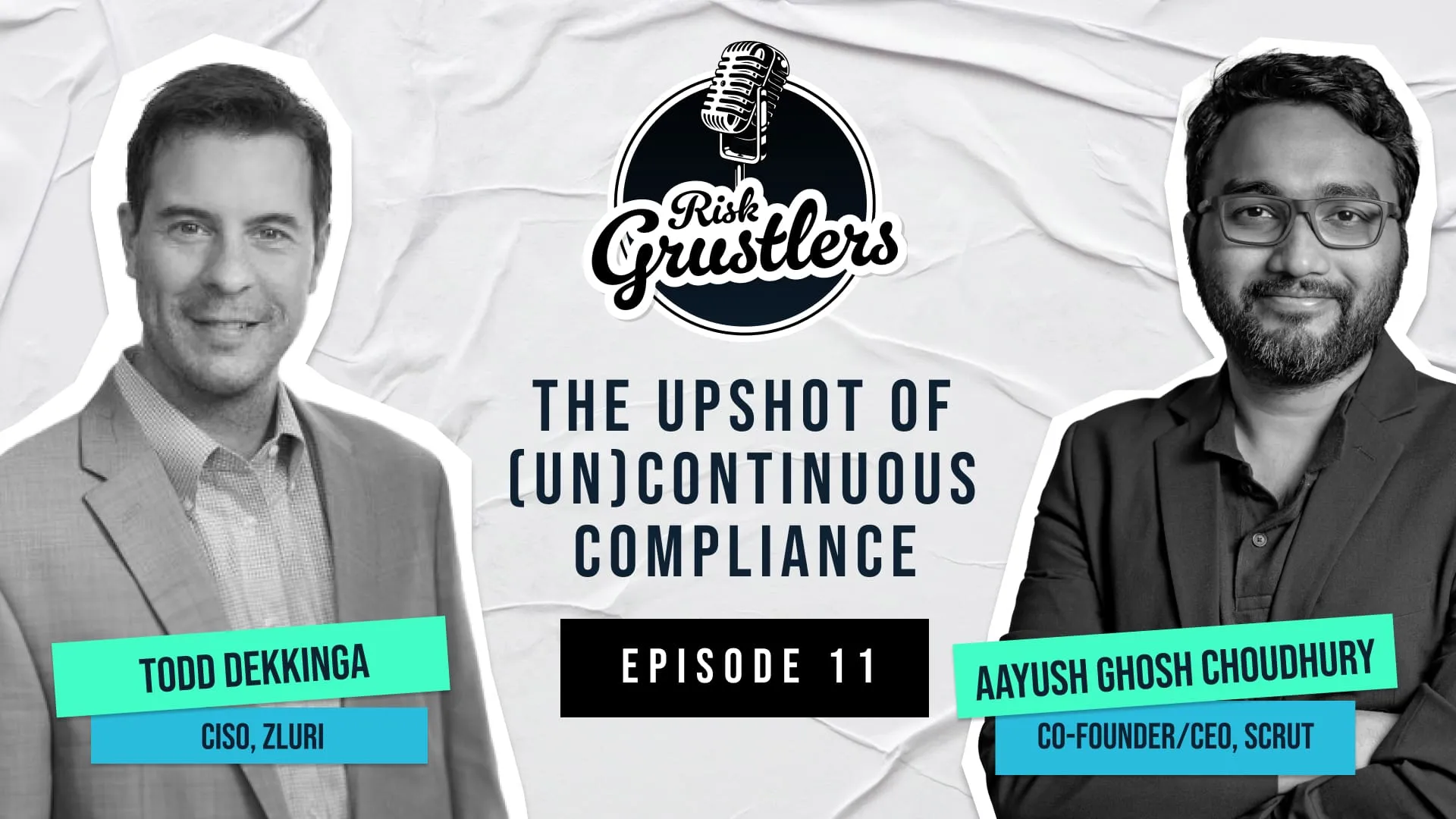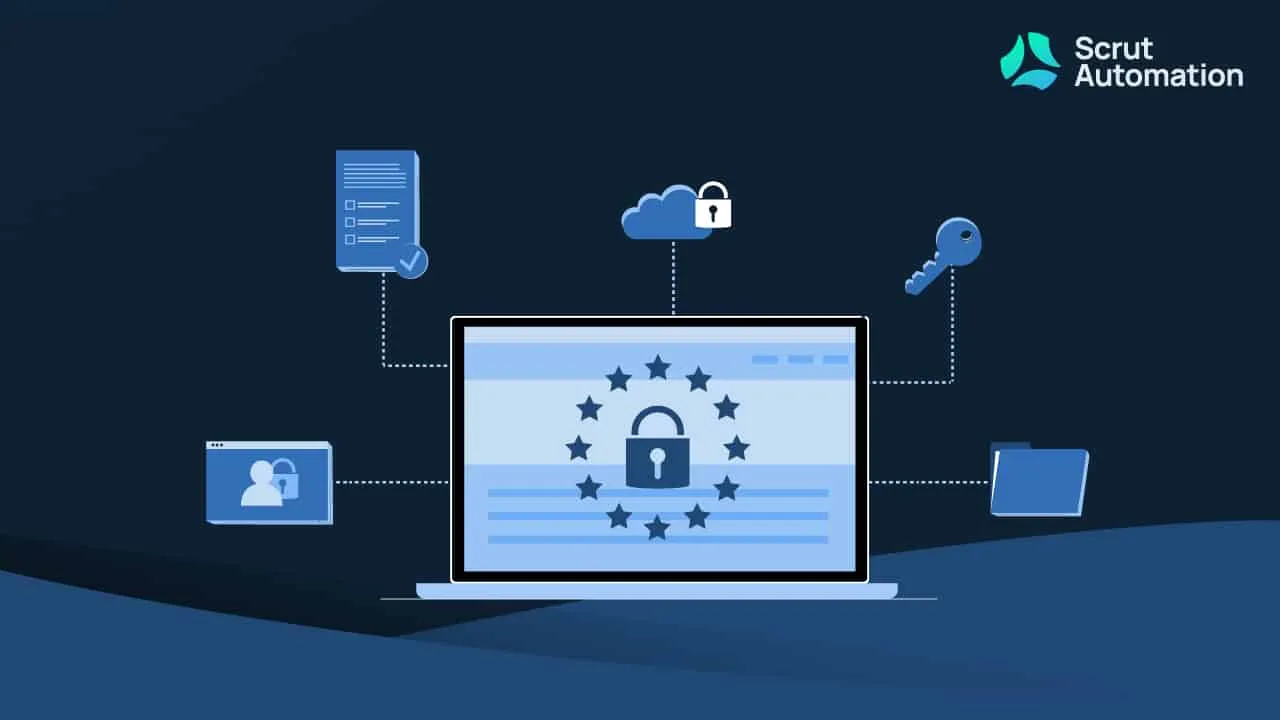Ultimate guide to hiring ISO 27001 consultants in 2025
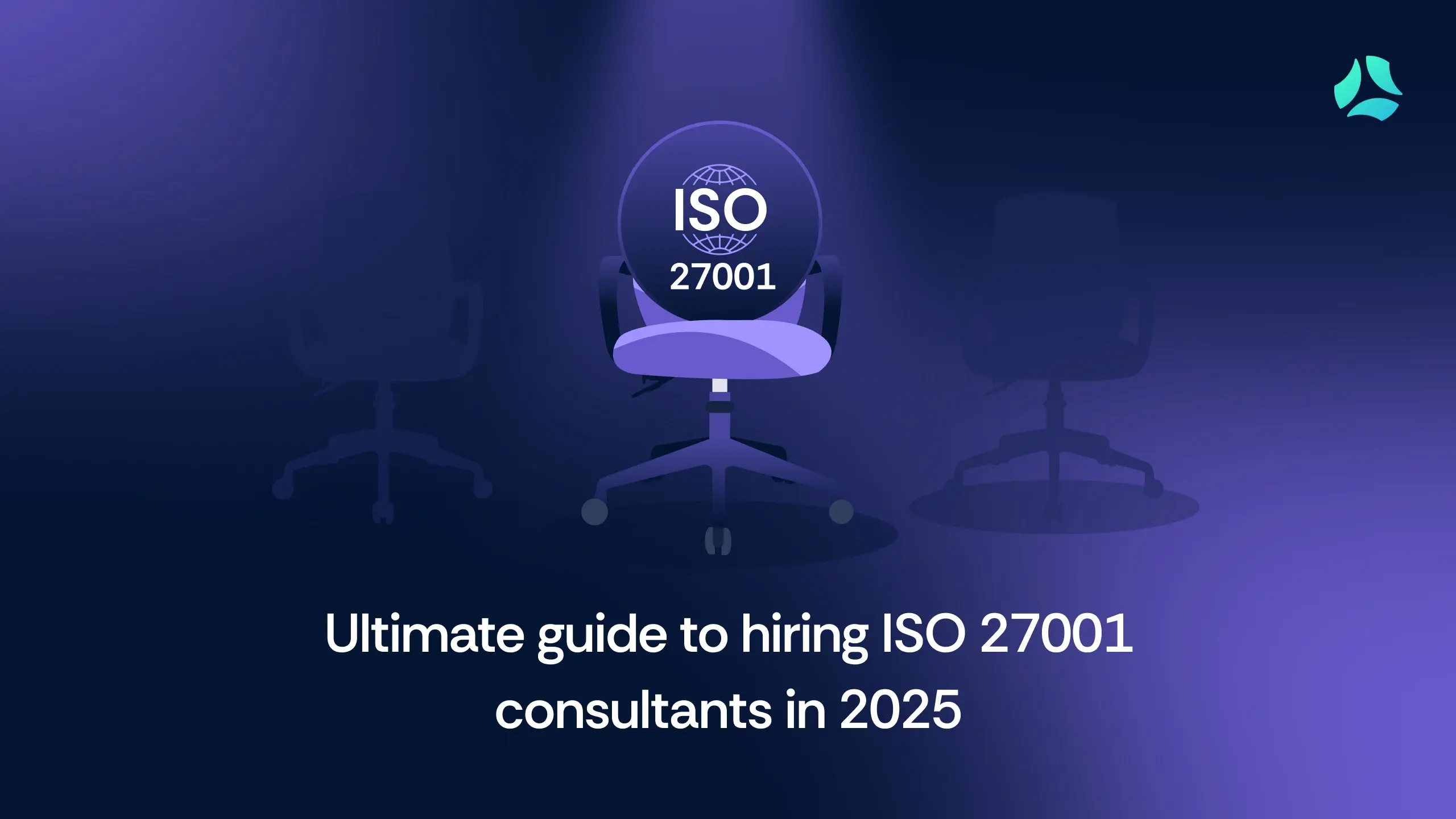
Whether you’re a startup chasing enterprise contracts, a fintech scaling operations, or a health tech company seeking HIPAA alignment alongside ISO 27001, you’re likely considering ISO 27001 consultants to ensure compliance.
ISO 27001 consultants bring extensive experience across the ISO 27001 compliance value chain, from conducting risk assessments to defining controls, drafting documentation, and successfully passing audits. For teams without compliance backgrounds, consultants can mean the difference between certification success and costly delays.
Also, selecting the wrong consultant can set you back months and cost far more than expected. The right one helps you build a lasting security culture, not just pass an audit. That distinction matters more than most teams realize.
This article breaks down what ISO 27001 consultants actually do and when they're worth it. We'll also explore cost-effective alternatives that might work better for your situation.
Who is an ISO 27001 consultant?
An ISO 27001 consultant is a risk and compliance professional specializing in ISO/IEC 27001 implementation and maintenance. These consultants help organizations design an information security management system (ISMS) that aligns with the ISO 27001 standard’s requirements, including controls, risk management principles, and documentation requirements.
The consultant helps organizations adapt ISO 27001 to their industry or business requirements, whether in SaaS, banking, healthcare, or manufacturing. Under their expert guidance, organizations prepare and acquire certifications efficiently. They can be either internal or external.
Internal consultants are company employees with expertise in implementing ISO 27001, offering an advantage of knowledge of the organization's specific context and workflows. External consultants are independent specialists with cross-industry experience in implementing ISO 27001, offering fresh insights and proven strategies. The decision to use internal or external consultants depends on ISO 27001 maturity and the specific business requirements of individual organizations.
Roles and responsibilities of an ISO 27001 consultant
Some ISO 27001 consultants guide you through the entire certification journey from start to finish. Others jump in for specific tasks like gap analysis or audit prep.
The scope depends on what your organization actually needs. Maybe you have strong internal security but need help with documentation. Or perhaps you're starting from scratch and need end-to-end support.
Understanding the roles and responsibilities of ISO 27001 consultants is key to evaluating whether you need one and making an informed decision about hiring one.
1. ISMS design and documentation
The consultant will help you design and implement the ISMS, including policies, procedures, and controls that align with the Annex A controls in ISO 27001:2022. The updated Annex A contains 93 security controls organized into four categories: organizational, people, physical, and technological.
They help you align the ISMS to meet your organization's security requirements and those of the ISO 27001 standard. The consultant collaborates with your internal team to ensure your organization's ISMS meets your product and service security requirements.
ISO 27001 consultants also help you draft policies and procedures required for ISO 27001 compliance. These policies cover information security, access control, information classification and handling, risk management, business continuity, and more.
2. Risk assessment and treatment planning
Consultants assist you in conducting internal risk assessments, a core requirement of ISO 27001. These assessments help identify and assess potential security risks and recommend appropriate treatment plans.
The ISO 27001 consultant enables organizations to prioritize risks by grading the impact from high to low in consultation with the organization's internal team. The consultant then helps organizations prepare an appropriate mitigation plan. Consultants also help organizations build risk treatment plans and document incident responses—both critical components of certification audits.
3. Drafting the statement of applicability
The consultant also helps you prepare the Statement of Applicability (SoA) document, which outlines the information security controls from Annex A that apply to your organization's ISMS. This document is an essential requirement of the certification process and helps demonstrate how the organization is implementing controls to mitigate identified risks.
4. Conducting a gap analysis
The consultant assesses your current security posture and compares it against the requirements set by the ISO 27001 standard. They interview key personnel, review documents, collect data from across the organization, and conduct site tours.
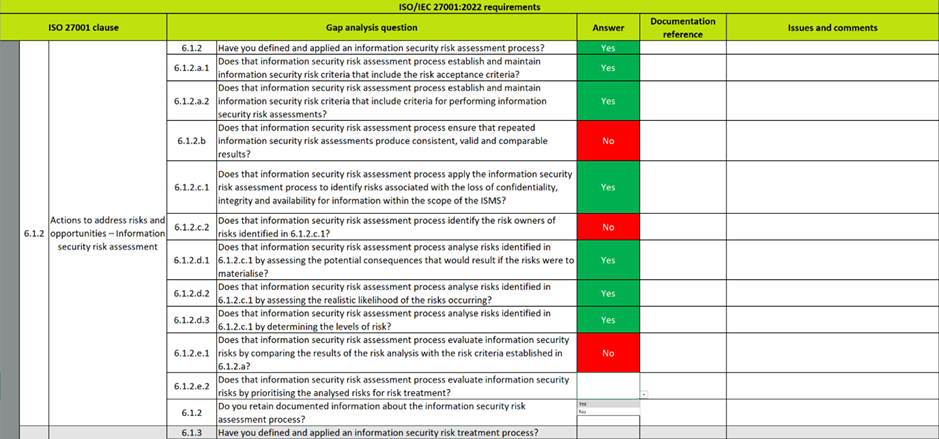
The consultant then analyzes multiple data points and develops a plan outlining the necessary steps, timelines, and responsibilities to enable the organization to address the identified gaps for achieving ISO 27001 compliance.
5. Training and awareness
Consultants conduct training sessions for internal teams to raise awareness about the ISMS and ensure everyone understands their role in maintaining compliance. Many cyberattacks start with phishing emails, which have increased by 1265%, driven by Gen AI adoption.
Ninety-eight percent of cyberattacks use social engineering to entice individuals into divulging organization credentials and sensitive information for malicious purposes. The training conducted by ISO 27001 consultants prevents employees from falling prey to social manipulation techniques.
6. Internal audit and preparation for certification
ISO 27001 consultants conduct mock audits and internal reviews to ensure the organization's preparedness before the final audit. The consultant will assess ISMS performance, review documentation, and address shortcomings for ISO 27001 certification.
Consultants assist the internal team in compiling documents and preparing evidence to support the audit. Although auditors discourage the presence of consultants during audits, they can answer technical questions when asked explicitly by auditors. It helps enhance your chances of certification.
ISO 27001 certification is not a one-time activity and requires annual surveillance audits and recertification audits every three years. It also requires organizations to conduct internal audits at least annually to maintain their validity. Organizations should continually review and enhance their ISMS, including updating policies and procedures. In addition to assisting with the certification, ISO 27001 consultants help your organization stay compliant through audits and help keep documentation updated.
Should you hire an ISO 27001 consultant?
Hiring an ISO 27001 consultant can be a strategic decision for organizations seeking efficient and effective compliance. Although the advantages outweigh the disadvantages, you should factor in both aspects before hiring a consultant.
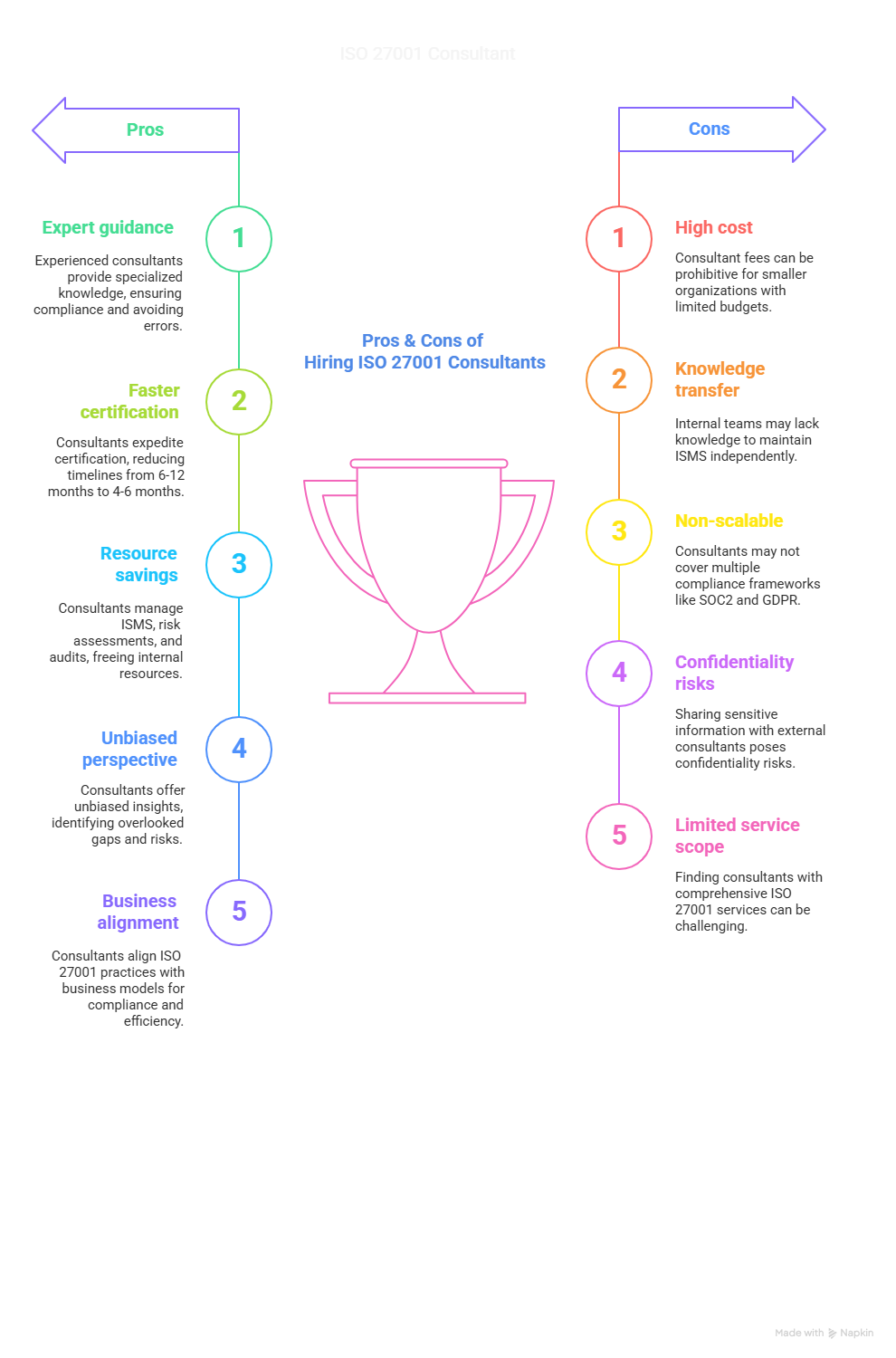
How much does an ISO 27001 consultant cost?
The cost of hiring an ISO 27001 consultant depends on the:
- Consultant's experience level
- Services provided
- Engagement duration
- Size and complexity of the organization's ISMS
A consultant will generally charge between $15,000 and $40,000 for working on a compliance project's entire life cycle, from defining the scope through implementation and certification audit. Besides, there are hidden costs of around $15k covering consultant travel, additional training or workshops, and document revision cycles after audit feedback.
ISO 27001 consultants charge an equivalent amount for handling specific phases of compliance projects, such as risk assessment, gap analysis, ISMS development, and audit support.
Is there an alternative to hiring an ISO 27001 consultant?
Compliance automation platforms have changed how organizations approach ISO 27001. Instead of outsourcing the entire process, you can maintain internal control while still getting expert guidance.
This is the trade-off: consultants bring deep experience but often leave when the project concludes. Automation platforms help you build lasting internal capability. This is because modern compliance platforms, such as Scrut, combine automation with access to ISO 27001 experts and auditors. You get automated workflows, real-time support, and proven policy templates without the consultant price tag.
Additionally, with 24/5 online support and access to auditors and industry experts, Scrut can help address technical and compliance questions specific to your organization, fulfilling the role of a consultant at a much-reduced cost.
Scrut can help you with ISO 27001 compliance certification with its comprehensive tools and expertise. Here’s how:
1. Continuous monitoring keeps you audit-ready
Scrut continuously monitors cloud infrastructure and runs tests every 24 hours across compliance artifacts. It identifies gaps before they become audit issues. By monitoring compliance progress every day, Scrut helps organizations stay ISO 27001 audit-ready by proactively surfacing gaps and automating evidence collection.
The platform securely stores ISO 27001 documentation, simplifying the process of presenting evidence during audits. The dashboard helps you track upcoming audit timelines. It offers checklists to ensure all activities, from defining the ISMS scope to conducting risk assessments, are completed on schedule.
2. Pre-built templates speed up implementation
Starting from scratch wastes time and introduces risk. Scrut provides proven policy and control templates for information security, access control, and data protection. These aren't generic templates—they’re designed to align with ISO 27001’s documentation and control requirements..
You customize them for your environment rather than writing everything from zero. This approach cuts implementation time significantly while reducing your chances of missing critical requirements.
3. Automated evidence collection
Thanks to its extensive integrations with cloud services, identity, SSO, MDM providers, and others, Scrut automates evidence collection, reducing the time required in the process by 70%. With out-of-the-box integrations, the tool connects across an organization's application and infrastructure landscape, such as cloud providers and ticketing platforms. It expedites evidence collection and control verifications, making the certification process efficient.
4. Continuous control monitoring
Scrut continuously monitors the controls within your ISMS, ensuring that deviations from compliance standards are quickly identified and addressed. Automated control mapping ensures that each requirement is linked to proof of implementation—log files, test results, or policy documents—which makes audits faster and more accurate.
Scrut’s continuous monitoring and automation ensure that your controls are effective, minimizing non-compliance during annual surveillance audits.
5. Support for recertification and regulatory updates
Scrut supports your organization beyond the initial ISO 27001 certification by ensuring you remain audit-ready for annual surveillance audits and the mandatory recertification process every three years. Its automation capabilities identify policies impacted by regulatory changes and recommend updates to align with new requirements, helping you maintain compliance and accelerate the recertification process.
Scrut reduces the time and resources required for ISO 27001 certification, making it a cost-effective solution specifically for small and medium-sized enterprises pursuing certification.
Conclusion
An ISO 27001 certification is a benchmark for information security, instilling customer trust and confidence. Hiring ISO 27001 consultants can help you fast-track certification and avoid costly missteps and delays. They act as a partner, guiding you at every step of the process to help you navigate the complexities of ISO 27001 certification and adhere to information security best practices.
However, carefully evaluate ISO 27001 consultants, balancing technical competencies, costs, and long-term utility. Compliance automation platforms like Scrut have emerged as a viable, cost-effective alternative that provides long-term value. Choosing solutions like Scrut can expedite ISO 27001 compliance, significantly reduce manual efforts, and optimize costs. Scrut offers ISO 27001 consultant-level capabilities, including policy templates, risk assessments, gap analyses, and audit documentation support.
By combining automation, expert guidance, and real-time monitoring, Scrut empowers organizations to achieve and maintain ISO 27001 certification efficiently, eliminating much of the complexity typically associated with compliance. Schedule a demo to learn more.
Frequently Asked Questions
How much does it cost to get ISO 27001 certified?
The cost of ISO 27001 certification ranges from $15,000 to $80,000, depending on your organization's size, complexity, and readiness for audit. The costs can be broadly classified into pre-certification, implementation, certification audit, post-certification maintenance, and miscellaneous expenses. While budgeting, you should also consider ongoing maintenance and annual surveillance audits.
What does an ISO consultant do?
An ISO 27001 consultant helps organizations design, implement, and maintain an Information Security Management System (ISMS) aligned with ISO 27001 standard. They guide organizations through achieving and maintaining ISO 27001 certification by assessing current processes, identifying compliance gaps, drafting required documentation, training staff, and preparing staff for the Stage 1 and Stage 2 certification audits by external auditors.
How hard is it to get ISO 27001?
Getting ISO 27001 certified can be challenging, especially when an organization is acquiring certification for the first time. The certification requires knowledge of various security controls, extensive documentation, risk management practices, and organization-wide cultural change. It also requires significant time, resources, and leadership commitment. Proper planning, a methodical approach, and leveraging external expertise can expedite your organization's ISO 27001 certification process.



